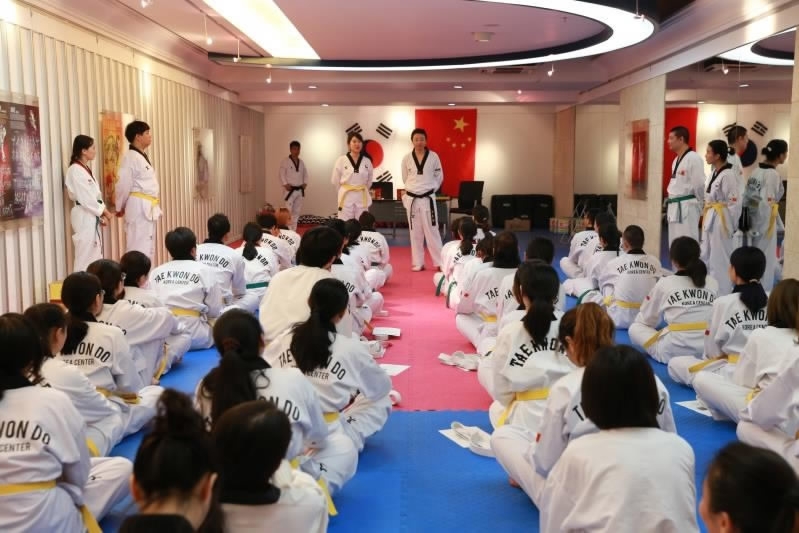 |
|
Taekwondo class at the Korean Cultural Center in Beijing.[Photo provided to CGTN] |
Animations, comics, games and novels (ACGN) are shared interests between Chinese and Japanese youngsters. Japanese manga has a profound fan base in China.
Now with the technology, video-sharing websites like Chinese-language Bilibili and Japanese-language Niconico provide the fans with new platforms to communicate and exchange views directly.
Another important platform for the cultural exchanges between China and Japan is film festivals. Since 2006, Shanghai and Tokyo have held the Japanese Film Festival and Chinese Film Festival respectively. The festivals, usually run for one week and provide audiences with an opportunity to see films that are not open in local theaters.
The two sides are also working on co-productions.
The diplomatic ties between China and the Republic of Korea (ROK) was not established until 1992. However, good relations have taken off since then.
26 years on, China is South Korea's largest trading partner and main source of tourists, while South Korea is China's fourth-largest trading partner.
Korean culture is not only famous but also influential in China. From K-pop, to martial arts, to food, the connection between China and South Korea runs deep.
Generations of Chinese have woven Korean elements into the nation’s cultural fabric, cultivating interest that goes well beyond Gangnam Style, Pororo and kimchi.
Experts say China's fascination with its neighbor was largely fueled by the "Hallyu" movement in the 1990s, when Korean TV shows and pop culture gained popularity among many Asian countries.
The trend has been growing for nearly three decades and is still well-received by Chinese audiences.